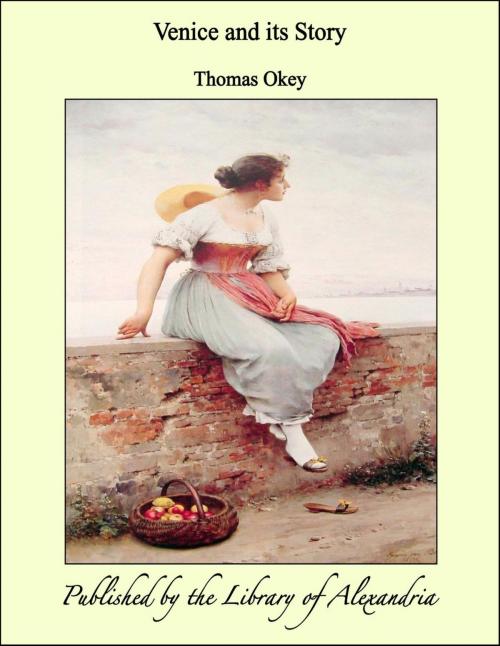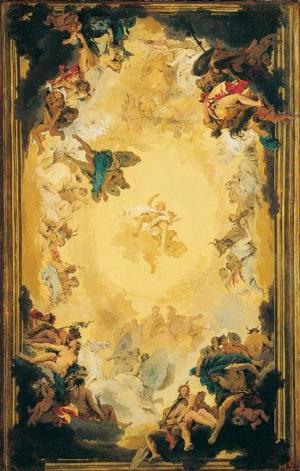| Author: | Thomas Okey | ISBN: | 9781465562944 |
| Publisher: | Library of Alexandria | Publication: | July 29, 2009 |
| Imprint: | Library of Alexandria | Language: | English |
| Author: | Thomas Okey |
| ISBN: | 9781465562944 |
| Publisher: | Library of Alexandria |
| Publication: | July 29, 2009 |
| Imprint: | Library of Alexandria |
| Language: | English |
THE History of Venice is the history of a State unparalleled in Europe for permanence and stability. For centuries Venice occupied that position of maritime supremacy now held by Great Britain, and time was when an English king was fain to crave the loan of a few warships to vindicate his rights in France. The autonomy of the Venetian Republic so imposed on men’s minds that it was regarded as in the very nature of things, and even so acute an observer as Voltaire wrote in the Dictionnaire Philosophique, less than three decades before her fall: “Venice has preserved her independence during eleven centuries, and I flatter myself will preserve it for ever.” In the course of our story we have freely drawn from the old chronicles, while not neglecting modern historians, chiefest of whom is the Triestine Hebrew scholar, Samuele Romanin. Indeed, all that has been written on Venetian history during the past forty years does but increase our admiration for the imperturbable industry and sagacious judgment of the author of the Storia Documentata di Venezia, to whom our heaviest debt is due. The history, criticism and appreciation of Venetian architecture and Venetian painting are indissolubly associated with the genius of Ruskin, and notwithstanding some waywardness of judgment and spoilt-child philosophy, his writings are, and ever will be, the classic works on the subject. Among more recent authorities we are indebted to the publications of Berenson, Bode, Burckhardt, Ludwig, Morelli, and Saccardo. For purposes of description we have divided the city and outlying islands of the Venetian lagoon into twenty sections, arranged rather with regard to their relative historical and artistic importance than to strict topographical considerations, although these have not been lost sight of. In our quality of cicerone we have drawn from an acquaintance of the city at various times extending over a period of twenty years: more detailed and practical information may be sought in the admirable guide-books of Baedeker, Grant Allen, Gsellfels and Murray
THE History of Venice is the history of a State unparalleled in Europe for permanence and stability. For centuries Venice occupied that position of maritime supremacy now held by Great Britain, and time was when an English king was fain to crave the loan of a few warships to vindicate his rights in France. The autonomy of the Venetian Republic so imposed on men’s minds that it was regarded as in the very nature of things, and even so acute an observer as Voltaire wrote in the Dictionnaire Philosophique, less than three decades before her fall: “Venice has preserved her independence during eleven centuries, and I flatter myself will preserve it for ever.” In the course of our story we have freely drawn from the old chronicles, while not neglecting modern historians, chiefest of whom is the Triestine Hebrew scholar, Samuele Romanin. Indeed, all that has been written on Venetian history during the past forty years does but increase our admiration for the imperturbable industry and sagacious judgment of the author of the Storia Documentata di Venezia, to whom our heaviest debt is due. The history, criticism and appreciation of Venetian architecture and Venetian painting are indissolubly associated with the genius of Ruskin, and notwithstanding some waywardness of judgment and spoilt-child philosophy, his writings are, and ever will be, the classic works on the subject. Among more recent authorities we are indebted to the publications of Berenson, Bode, Burckhardt, Ludwig, Morelli, and Saccardo. For purposes of description we have divided the city and outlying islands of the Venetian lagoon into twenty sections, arranged rather with regard to their relative historical and artistic importance than to strict topographical considerations, although these have not been lost sight of. In our quality of cicerone we have drawn from an acquaintance of the city at various times extending over a period of twenty years: more detailed and practical information may be sought in the admirable guide-books of Baedeker, Grant Allen, Gsellfels and Murray















